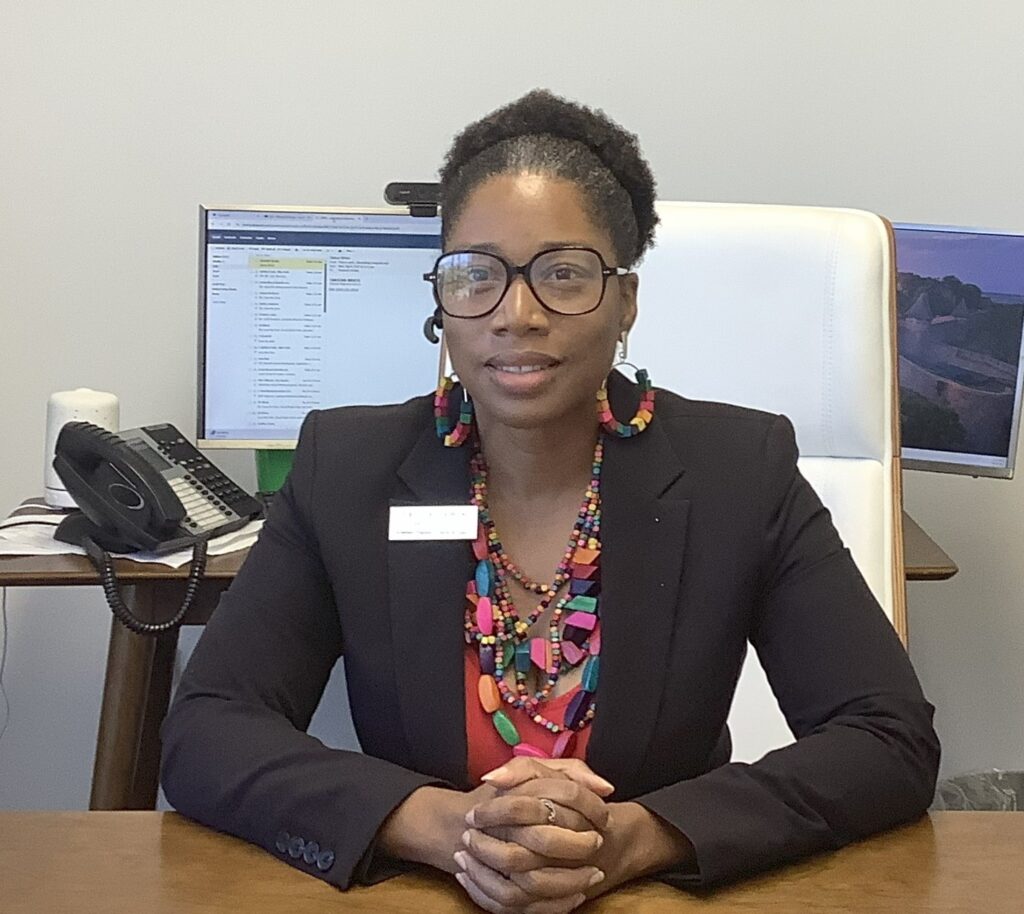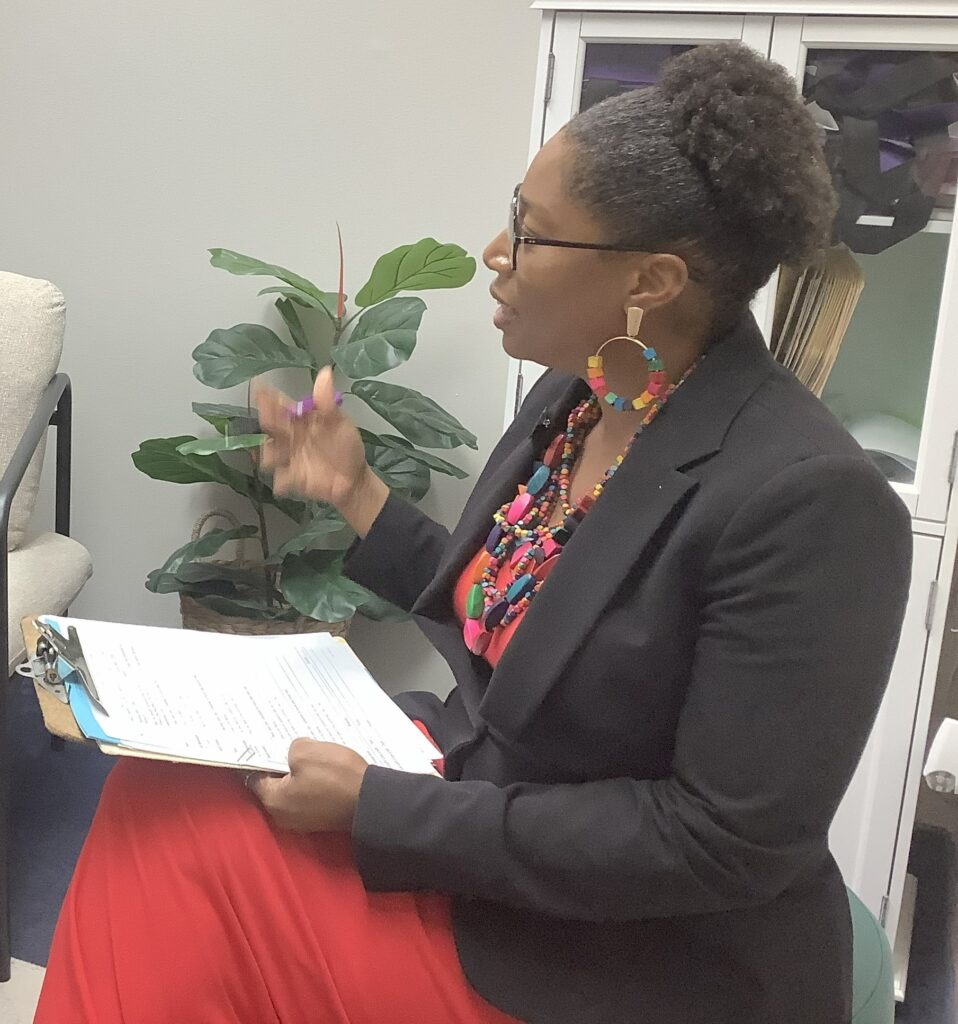In June 2022, the US Supreme Court’s Dobbs decision changed legal landscape of abortion overnight in Louisiana. In the three years since Roe v. Wade was axed, Patrice Lewis, director of the Acadiana Pregnancy Center and Clinic in Lafayette (APCC), sees the change was not simply a legal one making abortion illegal—it required a rethinking of the APCC’s ministry, strategy, and service.
“Even though Roe v. Wade had been dismantled, then Attorney General Jeff Landry told us, ‘You won the battle. Now you have to have a different playbook.’ That spoke volumes to me,” Lewis recalled. “We realized we had to expand our program—not only to walk with women during pregnancy, but to support them long after the baby is born.

Helping Fathers to Father
Before Dobbs, many pregnancy centers—including Acadiana’s—focused their services primarily on prenatal and pregnancy support. But, anticipating an increase in full-term pregnancies and deliveries, APCC recognized that more comprehensive solutions were needed.
One innovation to APCC’s long term pro-life strategy is helping fathers to father responsibly. “We’re piloting a male mentorship program because if we can reach the men, we can help stabilize entire families.” Lewis knows that stable families are more likely to choose life and less dependent upon the external services and supplies that APCC offers.
The new initiative to help fathers includes training vetted male mentors through partnerships with local churches. The effort is designed to meet men where they are. “What we’ve learned is that most men won’t come without the women,” Lewis said. “So, we invite couples together, break the ice, and then connect the men to one-on-one mentorship. The men carry a lot of burdens, and we want to give them space to share and grow.”
One success story illustrates the potential impact of APCC’s father focused approach. Lewis tells of a young father who first came to classes simply because his wife was working and they needed diapers. There, he connected with a mentor from a local church who invited him to a men’s bible study. That relationship drew the couple into deeper involvement with the church, which has since embraced them with support, including a baby shower. The father has taken Dave Ramsey’s financial courses, begun sharing his faith at work, and now hopes to serve as a mentor himself.
Given these successes, APCC is deepening church partnerships. “If the man accepts Christ and starts leading his family, 95% of the family will follow,” Lewis said. “That’s the kind of generational change we want to see.”
The Battle Continues
While abortion remains legal in many states, Louisiana’s abortion laws are some of the most pro-life in the country:
- Near-total ban on abortion at all stages, with exceptions only when the mother’s life is at risk or the fetus has a fatal abnormality.
- Criminal penalties for providers include 1–10 years in prison and fines up to $100,000; harsher sentences apply if minors are involved or if abortion pills are used improperly.
- Civil damages allow women to sue providers for malpractice and damages for up to 10 years after the procedure including statutory damages of not less than one hundred thousand dollars for the provision of abortion-inducing, special and general damages upon proof of injuries, exemplary damages for injuries caused by reckless disregard for the law, and exemplary damages when the woman was a minor when the defendant knew or should have known the minor’s age along with court costs and reasonable attorney fees. La. Stat. Ann. § 9:2800.12
- Abortion pills (mifepristone and misoprostol) are classified as of 2024 as controlled substances. While women themselves are not prosecuted for taking them, distribution and prescribing in Louisiana is a crime.
Yet, despite Louisiana’s strong laws, Lewis reminds that the demand for abortion remains. Currently, the APCC sees three main categories of clients:
- Likely to carry (already inclined to keep the pregnancy),
- Abortion-minded (seeking abortion), and
- Abortion-vulnerable (undecided, but under significant pressure).
Lewis estimates that two-thirds of clients are still either abortion-minded or abortion-vulnerable.
The abortion pill represents the fastest growing weapon used against the unborn. “The abortion pill is what most women mention first,” she said. “They think it’s easy and private because it can be mailed to their homes. We’ve even had clients admit they purchased the pill but then decided not to take it.” Though the abortion pill is illegal in Louisiana, Lewis notes that a woman cannot be prosecuted for taking the pill, “But, it is illegal to send it here. Still, the pills are coming in. That’s the reality we face.”
In fact, New Orleans Public Radio WWNO reported that in 2024, telemedicine abortions in Louisiana reached 7,510 through clinics that mailed the abortion pill. FN
While recent state prohibitions may cut into the telemedicine numbers, the dilemma remains for Lewis and many pro-lifers: How to unveil the ongoing murder hidden by the privacy, prevalence and ease by which abortion pills kill babies? How to still stir the consciences of Louisianans despite the end of the graphic carnage that once came with in state surgical abortions? Truth and information remain the answers.

First, biblical authority and scientific consensus in embryology and genetics are clear: human life—as a distinct, whole organism—begins at conception. Pro-lifers can remind themselves and the public that the abortion pill still murders humans. Period.
Second, understanding and communicating the dangers of Mifrepristone, the abortion pill to which Lewis refers to as being mailed into Louisiana, is critical. Mifrepristone’s track record of wreckage includes both aborted children and mothers. The Ethics and Public Policy Center (EPPC) released on April 28, 2025, data on 865,727 mifepristone abortions from 2017–2023, showing that 10.93% of women experienced serious complications—such as sepsis, infection, hemorrhage, emergency care, or follow-up surgery—within 45 days.
To counter this health threat, one emerging pro-life advancement in Acadiana, particularly among pro-life OBGYN’s, can be the abortion pill reversal. “If a woman regrets taking the first pill, progesterone treatment can sometimes save the baby,” Lewis explained. “That may be the next life-advancing step in Acadiana.”
Third, Lewis advocates increasing outreach to at risk women who are searching for solutions since “legal” abortion ended in Louisiana. While pregnancy centers have far less competition from instate abortion providers, abortion groups continue dissemination of abortion pill propaganda and/or the pill itself into Acadiana. As such, APCC has stepped up efforts to reach at risk woman before the pill does. “It’s a competition for attention,” Lewis noted. “We’re competing with Planned Parenthood. That’s why we now have a live nurse chat 24/7 on our website—because if we don’t reach her at 2 a.m., she’ll be gone by morning.” Momentum in saving lives, however, continues as Planned Parenthood Gulf South announced the closure of its Baton Rouge and New Orleans clinics, effective September 20, 2025, with the shrinking of its Louisiana abortion profits.
In Acadiana, the Dobbs decision did not end the reach of abortion into Acadiana—it rewrote the script. Given the ongoing threat, particularly through the abortion pill, as Patrice Lewis sees it, the new “playbook” requires deeper partnerships and expanded services. “Babies are going to be born,” she said. “The question is: What are we going to do to tangibly, really help?” Through APCC, local churches and other Christian initiatives that seek to rebuild the family, calling fathers to father, blocking the abortion pill, and making abortion pill reversal accessible, Acadiana may one day be rid of the abortion curse. In the meantime, Lewis reminds us that the battle for life in Acadiana is ongoing.
J. Christian Lewis/AI assisted


